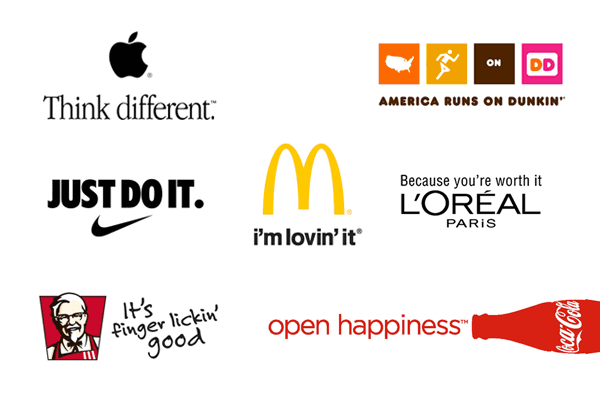
In 1999, Advertising Age, the nation’s leading marketing publication, selected the top ten advertising slogans for the 20th century.
If you are old enough to remember rotary dial telephones, you would almost certainly recognize them all.
At the top of the list was De Beers’ memorable slogan that debuted in 1938: “A Diamond is Forever.” The implication is that since carbon atoms configured as diamonds are astonishingly durable, surely your upcoming marriage will last just as long – assuming you purchase a ring from De Beers.
Nike’s “Just Do It” came in second. Three short words remind us of the company’s athletic apparel. Then there’s “The Breakfast of Champions” (Wheaties, with boxes displaying colorful portraits of sports heroes), “We Try Harder” (Avis, acknowledging they were in second place to Hertz, the car rental leader), and “Where’s the Beef?” (Wendy’s memorable campaign featuring the elderly Clara Peller squinting at a depressingly undersized McDonald’s hamburger).
“When It Rains, It Pours.” Those words no longer even appear on packages of Morton Salt. But the iconic image of the little girl with the umbrella reminds us of the original breakthrough of this simple product. One hundred years ago, salt would tend to clump – and therefore wouldn’t pour – whenever it rained or the humidity spiked. Morton pioneered an absorbing agent that got the salt flowing again.
That’s the power of a great slogan.
In something like 3-10 words, an organization or movement states its central claim or primary business. “This is who we are, what we provide, and what we hope you’ll always remember whenever you think of us.”
The etymology of “slogan” is fascinating. As Laura Reis documents in her book Battlecry, it comes from two ancient Gaelic words, sluagh gairm (which meant “gathering cry”). Over the centuries the two words conflated into slughorn, sloggorne, and finally slogan. A slogan is a rallying cry (like Liberte, Fraternite, Egalite of the French Revolution) that reminds us what we believe in and what we hope to accomplish.
So what is the rallying cry of those who follow Jesus?
Since there are no readymade slogans on the pages of the New Testament, various Christian groups have endeavored to inspire their adherents in a variety of ways:
A great devotional life solves all your problems.
“Real” baptism means going all the way under.
Social justice is Job One.
Of course you should speak in tongues.
We only vote for Jesus-approved candidates.
It takes three to thrive (that is, attend worship every Sunday morning, Sunday night, and Wednesday night).
There are lots more, of course – slogans that separate the Catholics from the Protestants from the charismatics from the Calvinists from the traditionalists from the radicals from the contemplatives and on and on.
Fortunately, we have the very words of Jesus to help provide some clarity.
On one occasion he was cornered by an expert in the Jewish law – that would be the 613 commands that appear in the Old Testament. Which law did Jesus think was most important? “Jesus replied: ‘Love the Lord your God with all your heart and with all your soul and with all your mind.’ This is the first and greatest commandment. And the second is like it: ‘Love your neighbor as yourself.’ All the Law and the Prophets hang on these two commandments” (Matthew 22:37-40). In other words, if we get those first two things right, everything else that God expects from the other 611 commands will happen as a matter of course.
Love God, love people.
That’s an astonishingly powerful slogan – four words that create our cross-shaped marching orders for the next 24 hours.
We love God with our whole self (the vertical dimension), which fuels our capacity to love all those around us (the horizontal dimension), which draws us into fellowship, worship, outreach, social justice, and stewardship of the good creation God has provided.
You may have thought you had a lot to do this weekend.
But actually you only have two tasks: Abandon yourself to God and give yourself to others.
And there’s only one way to respond to such a rallying cry:
Just do it.
